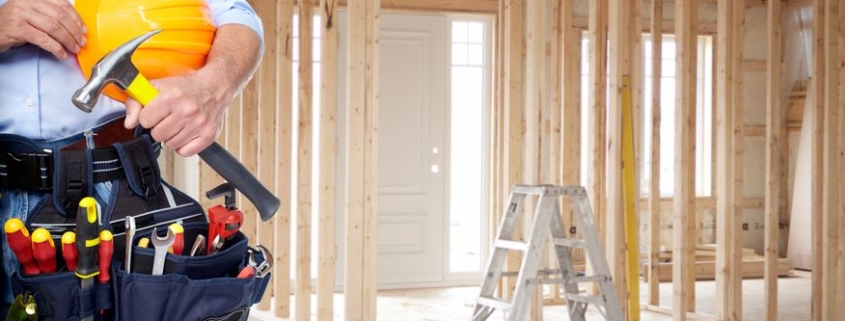9 Tips to Prepare for a Major Renovation
After surviving the lockdown, working from home, and staying with the kids 24/7, your roadside renovation project can no longer be postponed – we can hear you! The challenges posed by the pandemic have led many families to look carefully at their home environment. Some have moved to find a home that best suits their needs. Others are connected to their city or neighborhood but feel that their home needs a major overhaul to provide a better home base.
The solution is renovation. But what is included and where do you start? Here are 9 tips to prepare for a successful major renovation.
1. Consider your needs
Discuss the desired changes and preferred style
This first step is often neglected or poorly documented. Making a list of what you want to improve will not only help guide your choices but will also help determine what you like about your home (i.e., the features and rooms you want to keep such as).
Which key Renovations are you considering undertaking? An addition or addition to the floor? Do you want to renovate your kitchen or finish your basement? Talk about your needs and how you imagine your new and improved home.
What is your style? Do some research, get inspired by the latest trends, and note what catches your eye.
Think about your family’s future needs
There are huge costs associated with a major renovation, so it is important to get the biggest explosion for your profit. Where will you be in 10 years? If the kids are leaving the nest in three years, perhaps it is not necessary to build a study area just because they got the kitchen table during the last block! This type of analysis is key to deciding your needs.
2. Follow the market: How much do houses in your neighborhood cost?
Think about your neighborhood’s ability to handle your renovation. For example, if homes in your area sell for about $300,000, make sure your home does not cost $750,000 after the renovations are completed. You do not want to have the most expensive house on the block! Well, not if you can not afford it and plan to live there for the next 20 years. Depends on you.
3. Get floor plans for your major renovation
The feasibility of your project should be assessed once your needs have been identified. You have to contact a residential architecture expert, such as an architect or architectural technologist, who can develop a renovation plan for you.
How can you find a professional to help you? Some companies offer a service where the architect comes to your home to study the project and provide you with a feasibility assessment plus a ballpark idea of the costs involved.
A residential architecture expert will examine your home, its structure, and its ability to combine your renovations. They will do a survey of your home and add changes to it, developing the first draft of your plan.
4. Meet contractors and ask for quotes
With your plan in hand, you can contact the renewal contractors to request quotes.
Note that most contractors will offer you a flat rate job evaluation. If the project has complex parts or some that will be subcontracted (work done by an electrician, for example), those parts can be added separately to the contract, sometimes at an hourly rate.
Major renovations can sometimes have surprises and unexpected issues. Indeed, a contractor may prevent structural problems to fix, weakened or damaged beams, plumbing pipes to move, water infiltration, or even detect that the electrical system is not in compliance with the code. These changes will be discussed along the way but may affect time spent at work as well as the final bill.
5. Budget for your major renovation
Adjust according to quotes
Once you have received your quotes, it is time to make some difficult decisions as the quotes are often higher than originally expected. You can include some changes to stay within your budget. When you are satisfied with your choices, send these changes to your renovation expert. They will arrange the final layout.
It is highly recommended that your renovation expert and contractor work together. Their exchanges can generate great ideas based on their respective experiences and strengthen a bond that can prove useful throughout the project.
Adjust your budget to manage unexpected
One of the most important aspects of a renovation project is to include a safety net of at least 20% in your budget for surprises and incentive decisions of the moment. Most renovation projects cost a lot, so be prepared!
Remember to ask your contractor lots of questions. Talk about how you want to be informed about unexpected issues that arise and add the agreed process to the contract.
6. Where should you live during renovations?
It is highly recommended that you do not stay in your home during major renovations (kitchen, bathroom, retaining walls, etc.). Noise, dust, time of early arrival of workers in the country, constant arrivals, and departures closed water or electricity, washing dishes in the bathtub, clothes scattered around because the cupboards came out, bathrooms without showers get the idea!
It is therefore advisable to live abroad (e.g., rent a house or apartment, go out to camp) while the work is being done.
7. Do you have to save items during a major renovation?
Think about your things: will you need to store the contents of certain rooms while the work is being done? Plan to rent a storage unit or ask a close friend or family member with a large basement or spacious barn to store your belongings!
8. Notify your insurance provider
Contact your insurance provider to update your home insurance file. The premium can be adjusted while your project is ongoing if there is any possibility that the renovations will cause damage.
Furthermore, the insurance can be reviewed to reflect the value of your home after you have completed the renovations.
9. De-stress!
Major renovations can disrupt daily life, create costs, require decision-making, and of course cause stress levels. Remember it will not last forever and keep in mind that it is for your long-term comfort.


